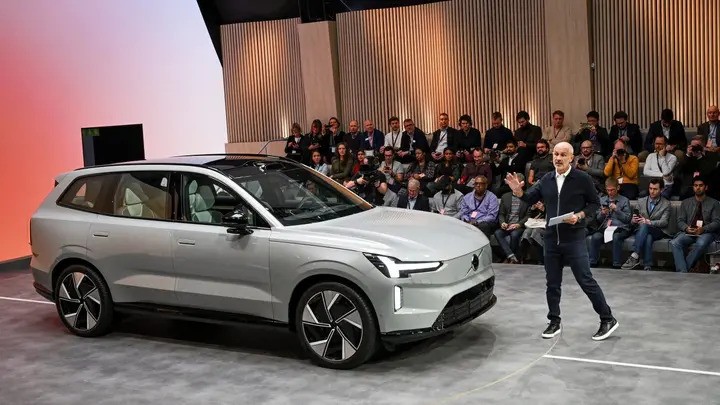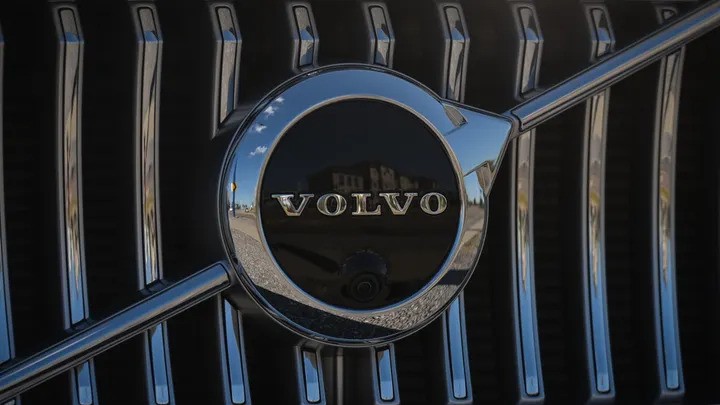In a surprising shift, Volvo announced on Wednesday that it will no longer exclusively produce electric vehicles by 2030. The Swedish automaker, which had previously set an ambitious goal of going fully electric, now says it will continue offering a limited number of hybrid models as part of its future lineup.
Market Pressures and Shifting Consumer Preferences
Volvo’s decision reflects the challenges automakers face as consumers weigh the cost and convenience of electric vehicles (EVs) against hybrids and traditional gas-powered cars. With China’s Geely holding the largest share of Volvo, the company and other car manufacturers are feeling the effects of declining demand for EVs.
Price-conscious buyers, concerned about the affordability of electric cars and the availability of charging stations, are increasingly turning to hybrids as a more practical option.

Additionally, Volvo, alongside other electric vehicle manufacturers, is bracing for the potential impact of European tariffs on Chinese-made EVs—a move that follows similar actions in the U.S.
Adjusted Goals for the Future
Volvo stated that its revised aim is for 90% to 100% of its 2030 global sales to come from electric vehicles and plug-in hybrids. The remaining 0% to 10% of its lineup will accommodate
“for a limited number of mild hybrid models to be sold, if needed.”
Despite this shift, the company remains committed to its long-term electrification ambitions. “Volvo Cars remains committed to its long-term ambition of full electrification, and the company’s long-term investment plan and product strategy remains geared towards fully electric cars,” the company said. “The adjustment to its ambitions is not expected to have any material impact on the company’s capital expenditure plans.”
Consumers Continue to Lean Toward Hybrids
Volvo’s announcement comes as the company predicts its electrified vehicle lineup—which includes both fully electric vehicles and hybrids—will represent between 50% and 60% of its sales by 2025. In the second quarter of 2024, Volvo’s fully electric vehicles made up 26% of its sales, while the combined total of EVs and hybrids stood at 48%.
Hybrid vehicles have gained popularity in the past year as consumers express concerns about the range of electric cars and the lack of widespread charging infrastructure. Often priced lower than fully electric options, hybrids offer an attractive solution for buyers looking to save money, especially amid rising interest rates on auto loans.

A May study from J.D. Power revealed that charging station availability is the leading reason for consumer hesitancy toward EVs, with 52% of respondents citing this as a major concern. This figure has increased by three percentage points from the previous year, highlighting growing anxiety around public charging infrastructure.
“Concerns about public charging infrastructure are only getting worse,” J.D. Power noted in its report.
Volvo’s Commitment to Electric Future Remains Strong
While challenges remain, Volvo has emphasized that it remains firmly committed to electrification. “We are absolute in our belief that our future is electric,” Volvo CEO Jim Rowan stated. “An electric car provides a superior driving experience and increases possibilities for using advanced technologies that improve the overall customer experience.”
Rowan also acknowledged the complexity of the transition, explaining that both customers and markets are moving at different speeds in their adoption of electric vehicles. “However, it is clear that the transition to electrification will not be linear, and customers and markets alike are moving at different speeds of adoption,” he added. “We are pragmatic and flexible, while retaining an industry-leading position on electrification and sustainability.”
Looking Ahead
Despite the hurdles, Volvo remains bullish on its future as an industry leader in both fully electric and hybrid vehicles. The company continues to position itself as a front-runner in the push for sustainable driving solutions, even as it adjusts its strategy to accommodate a slower-than-expected shift to all-electric vehicles.



